ISAW Hosts Workshop: Cult Practices in Ancient Literatures: Egyptian, Near Eastern and Graeco-Roman Narratives in a Cross-Cultural Perspective
This workshop, sponsored by the Volkswagen Foundation and by ISAW, brought together twelve emerging scholars working on religious, ritual and magical practices in literary texts.
Literature serves several purposes: we read novels and stories for leisure, entertainment, educational purposes to learn something, to rejoice on rhetoric devices, or to have a subject for small talk. Authors or the collective who composed and redacted literary works had specific intentions of what to say and how to tell their stories. Clearly, they had not in mind what this workshop was all about: to inform us on ancient cult practices. The magic was oftentimes just a narrative device to make the story more exiting.
However, in a number of cases, the literary texts such as novels, comedies, and revelations can tell us more about the cult practices themselves than the ritual sources. This is what my research project at ISAW focuses on in ancient Egyptian literature. During the workshop, we were able to draw intercultural comparisons of the descriptions of ritual practitioners, locations for cult practice, the specific time, and other features such as ritual instruments or even sensual perceptions of the interactions with the divine.
From the introduction to the museum tours, all the papers and presentations aligned very well, like pearls on a necklace, and followed my phenomena-based approach. Foremost, we discussed the role and social setting of the practitioners in literature: wise man and women, wizards, magicians, exorcists. Some of them were based at temples and churches as priests. They had students and a library of magical manuscripts. Others stood outside of the clerical hierarchy. In a few stories discussed widely in this workshop, the practitioners are seen as real superheroes dueling with foreign opponents using magical practices such as transformation into animals and creating servants from wax – just to name a few. Other divinatory practices mentioned in the papers featured several ways to obtain divine knowledge. The protagonists of the stories encountered the gods by dream incubation, oracles, and lecanomancy (pouring oil on water in a bowl). Even alcohol could have been involved. Sometimes, divine messengers offered cultic secrets in magical scrolls, which the practitioner had to eat – no matter how bitter or sweet they tasted.
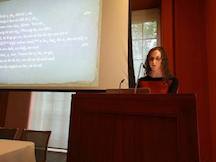
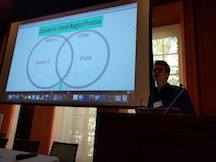
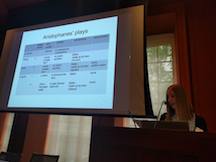
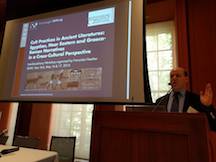
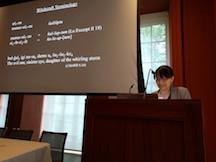
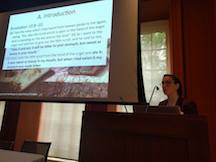
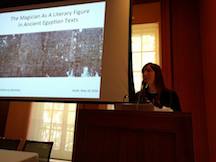
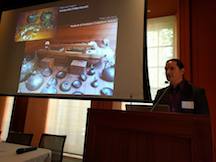
Several speakers in the workshop throughout both days, May 16-17th, 2016.
Since we were able to identify common motifs, metaphors and allegories in the literatures several ancient civilizations from Mesopotamia to Greece, from Egypt to the Latin West, it is worth presenting our findings in a proceedings publication. Edited by me, this will be submitted to ISAW Papers.